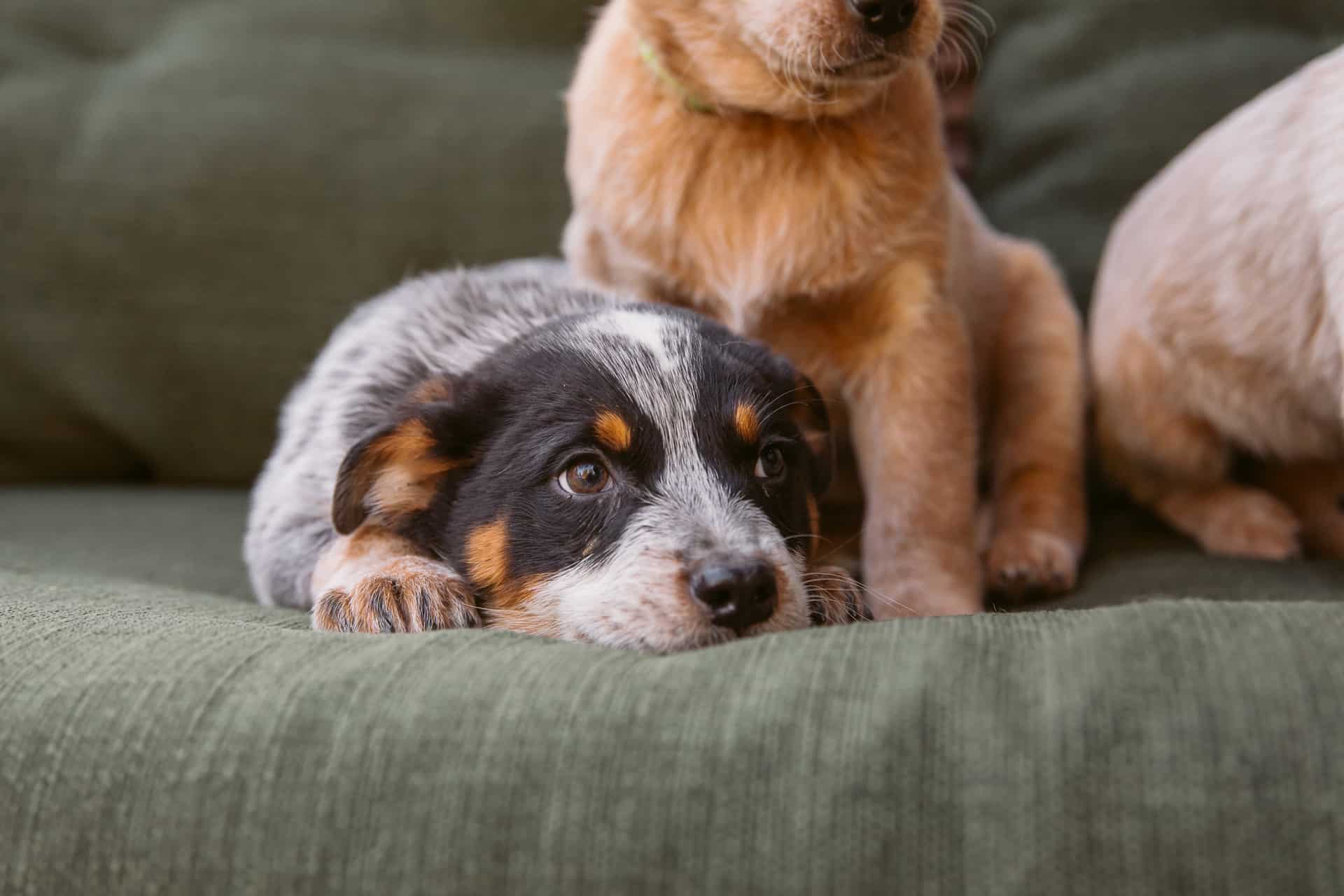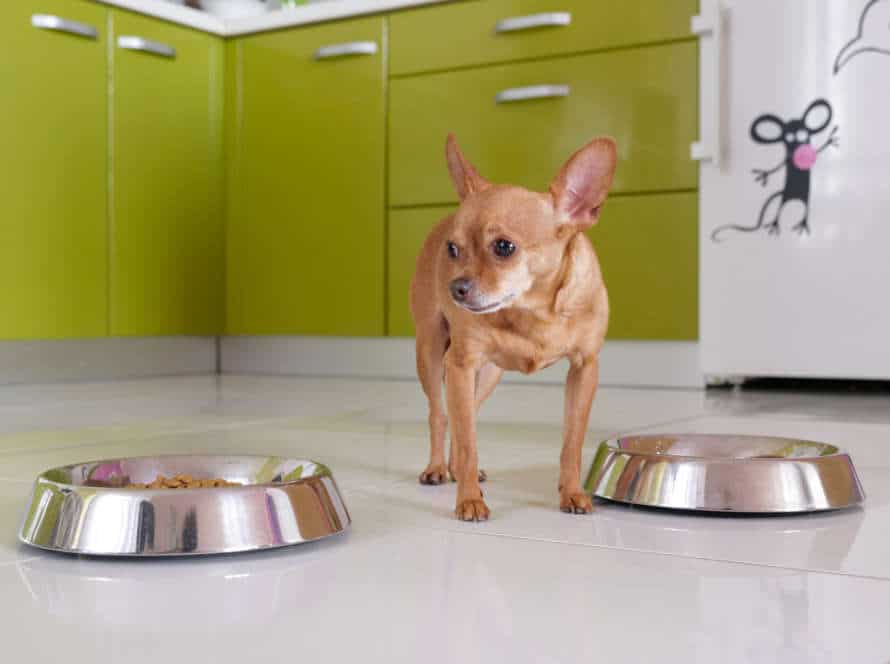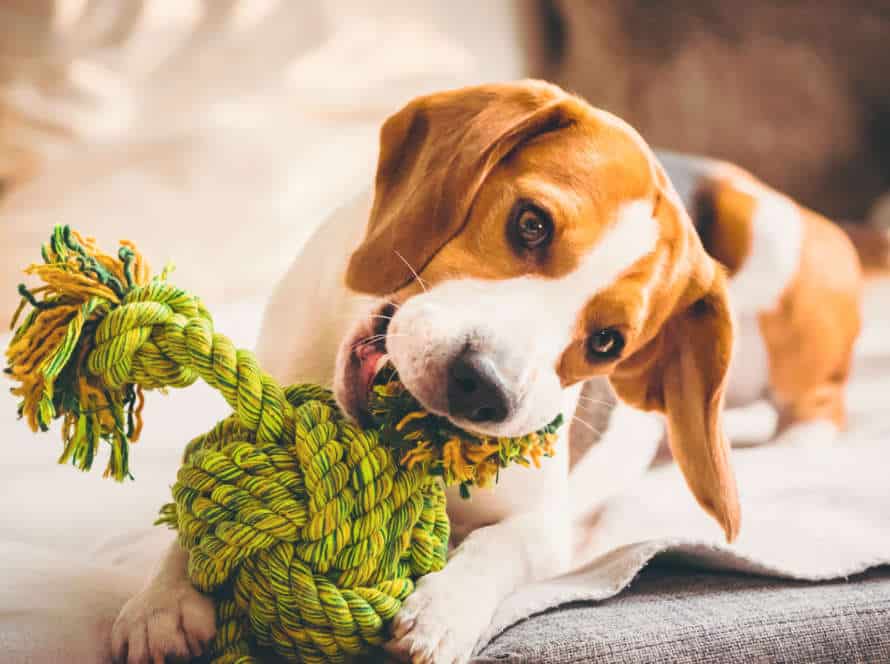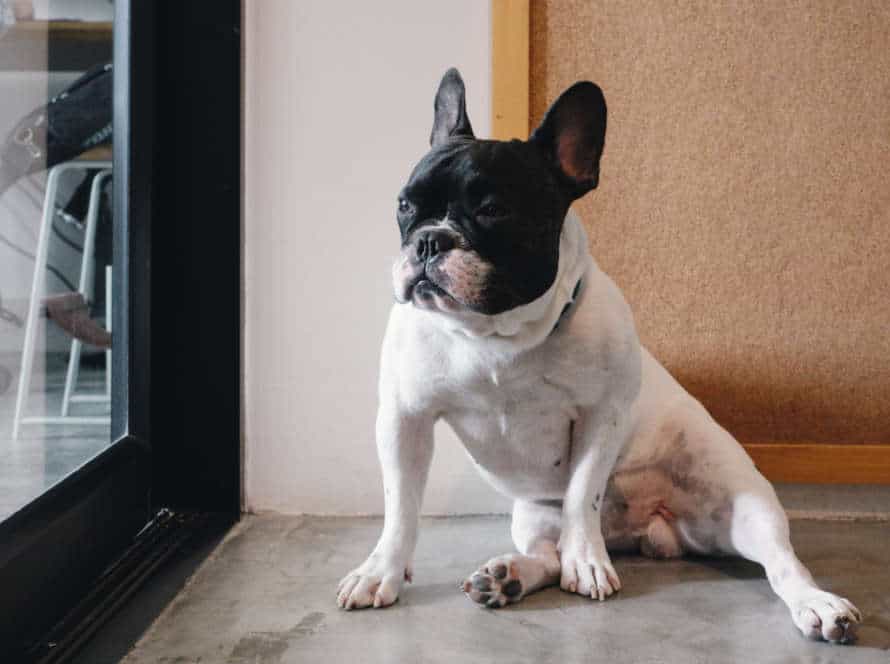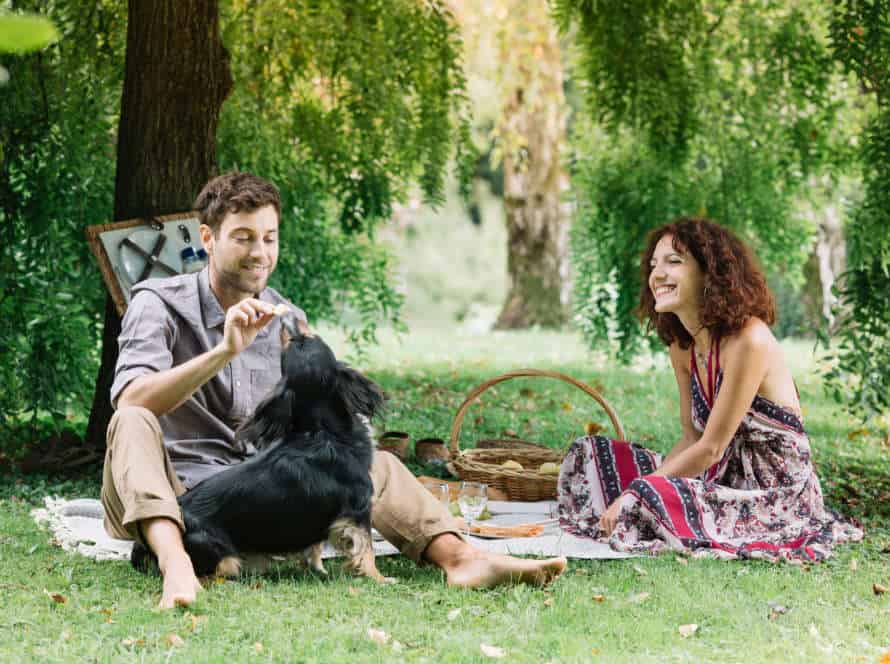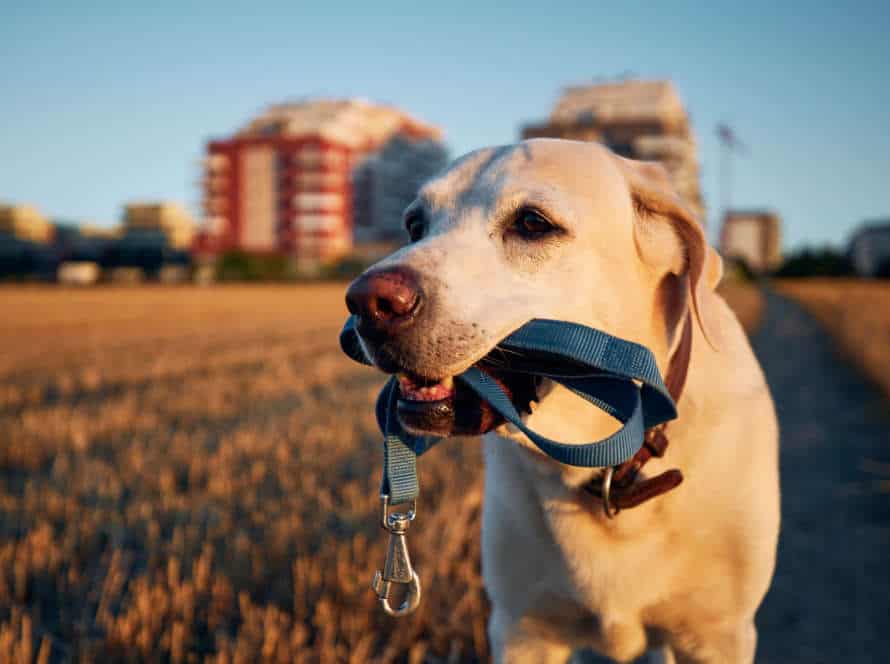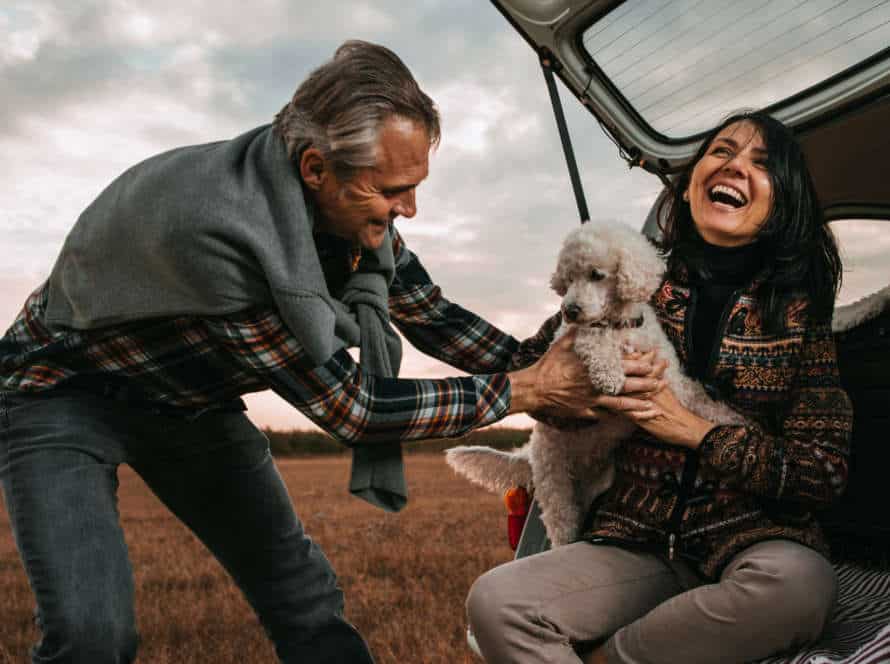Overwhelming Your Puppy: The Importance of Gradual Exposure
Gradual exposure is key for your puppy’s wellbeing. Too much of certain things, like loud noises, strangers, and other dogs, can cause behavioral problems like aggression and anxiety.
Introduce your pup to new things slowly. Short exposures at first, then gradually increase. Take them to different places, people, and animals in a slow and supervised way.
Be patient and don’t push them into uncomfortable situations. This way, you’ll prevent sensory overload and create good memories. It’ll also help them build confidence and develop properly. Keep in mind all puppies are different, so be consistent and positive. Have fun watching your pup grow!
The Importance of Gradual Exposure in Puppy Training
Training your pup? You must take small steps! Introducing your fur baby to the world slowly can help them become calmer with their surroundings. Plus, it builds trust and confidence. Taking the time to get them used to new people and experiences is crucial for their training!
In this section, we’ll talk about how important it is to expose your puppy gradually.
Understanding Overwhelming Situations that Can Harm Your Puppy
Exposing your pup to intense scenarios can have a bad effect on their growth and behavior. This shows why exposure in stages matters in their training.
Your pooch is more likely to become anxious or scared when faced with sudden changes or strange places. Exposing them gradually, through managed and watched training, can help your pup gain trust and adjust to new places.
Here are some ideas to reduce overwhelming situations for your puppy:
- Begin small and slowly build up to more difficult situations.
- Utilize positive reinforcement techniques to reward good behavior.
- Don’t overstimulate your pup with too many people or loud noises.
- Give your puppy a safe and comfortable area to go to when feeling overloaded.
Gradual exposure can help create a well-balanced and confident grown-up dog. So, be patient with your furry mate and keep in mind: slow and steady wins the race!
The Negative Impact of Overwhelming Puppies
Puppies can be overwhelmed, which can cause bad development and behaviour. Gradual introduction during training is key for them to get used to new stuff and stop fear or aggression.
Overwhelming puppies can cause:
- Fear or aggression with people, other dogs or new places.
- Stress that can lead to health issues.
- Disrupting natural behaviour, like exploring and socializing.
To help gradual introduction:
- Start with familiar people and places.
- Use treats and praise for good behaviour.
- Increase exposure to new stuff, but little by little.
- Don’t overwhelm the pup.
Gradual introduction is very important for successful training and a happy pup in the future.
Gradual Desensitization – The Key to Exposing Your Puppy
Gradual desensitization is a key part of allowing your pup to have new experiences without overwhelming them. This prevents fear, anxiety and aggression towards people and other animals.
Here are some tips:
- Begin with a low-impact area like your home or garden. Then, increase the amount of time and frequency of the exposure.
- Give positive reinforcement like treats and praise to give them a positive connection to new things.
- Don’t push your pup into anything uncomfortable; let them explore in their own time.
- Expose them to other humans, children and animals in a controlled way.
With patience and consistency, gradual desensitization helps your pup to become a balanced and confident adult dog.
Gradually Introducing Your Puppy to New Situations
Introduce your pup to new sights and sounds! Don’t take them to too many new places at once. Instead, take it slow. Gradually expose them for the best start in life. This way, your pup can explore without feeling overwhelmed. Now, let’s look at how to introduce them to different environments.
Gradual Exposure to Loud Noises
Habituating your pup to new situations calls for gradual exposure to loud noises. Unexpected loud sounds like firecrackers and thunder can stress out your puppy. Here are some tips:
- Begin with low-level recordings of various sounds. Increase the volume gradually.
- Use treats and praise as positive reinforcement for calm behavior during training.
- Expose your pup to real loud sounds in a controlled environment.
- Go slow. Don’t overwhelm your pup by exposing it to too many loud sounds quickly. This can hinder progress.
Gradual Exposure to Strangers and Other Animals
Slowly exposing puppies to strangers and other animals is important. It helps them adjust to new things and prevents them from being overwhelmed. Puppies use instinct to stay safe, and strange or difficult circumstances can cause an “escape or fight” response.
These are the steps to follow:
- Begin slowly by introducing your puppy to low-stress situations, e.g. meeting people or animals in a peaceful, familiar setting.
- Progressively introduce them to more demanding situations, such as a busy park or a vet’s office.
- Watch your puppy carefully for any signs of stress. If they appear anxious, panting or hiding, take them away from the situation and try again later.
- Praise and reward good behavior to help them become more confident and create positive associations with the situation.
Pro tip: Going too quickly can lead to fear, phobias, or aggressive behavior. So, it is essential to go slowly with exposing puppies.
Gradual Exposure to New Environments
Introducing your pup to new environments is essential. They can get scared by strange things! Here are some tips to make it a positive experience:
- Begin small – Show them new sights, smells and sounds gradually.
- Make it happy – Use treats and compliments to praise them and make nice memories.
- Be tolerant – Give pup time to see things and take breaks when needed.
- Steer clear of overwhelming – Watch their body language to not pressure them.
With gradual exposure, your pup can become confident and adaptive. Pro Tip: Every pup is different, don’t overload them with new experiences. Slow exposure is the key!
Gradual Exposure Techniques for Common Situations
Gradually introducing your pup to new things is key. Do it in a chill, no-stress way. Too much too soon could scare your pup. Let’s talk about some easy ways to gradually expose your puppy to everyday stuff.
Gradual Exposure to Grooming and Handling
Raising a content, balanced pup needs gradual introduction to grooming and touching. Puppies can quickly become overwhelmed in unfamiliar situations. Without correct exposure preparation, they could display a lot of undesirable attitudes, such as stress, hostility and evasion.
Here are some gradual exposure approaches for typical situations:
- Nail Clipping: Start simply by caressing your pup’s paws. Gradually move on to using the clippers.
- Bathing: Step-by-step introduce pup to soap and water. Start with a simple wet towel rub and move up to a full-on bath.
- Vet Visits: Regularly plan vet visits and take pup for car rides prior to get them used to it.
By introducing pup gradually to new situations, you can make sure they stay happy and balanced as they grow.
Pro Tip: Always reward positive behaviour with love and treats!
Gradual Exposure to Car Rides
Gradual exposure to car rides is a great way to prevent your pup from feeling overwhelmed. Here’s what to do:
- Introduce your pup to the car in the driveway or garage. This gives them time to get used to the car’s scent and explore inside, without the stress of motion.
- Take short rides and gradually increase their length. Give lots of treats and praise along the way.
- If your pup gets anxious, try to keep things calm. Reduce external things like loud music or sudden movements. Comfort them with a reassuring touch or voice.
- With time, they’ll learn car rides are positive experiences. Remember to prioritize their comfort & safety.
Gradual Exposure to Separation Anxiety
Gradual exposure is key to curbing pup separation anxiety. Show them confidence and security, even in their lone moments.
Here are some gradual exposure techniques:
- Shorten the time you’re away.
- Reassure pup when you say goodbye and hello.
- Provide them a safe and comfy space.
- Gently introduce pup to different people and situations.
- Reward good behavior, never punish for anxiety related issues.
Remember: Every pup is unique. Adjust your training to fit your pet’s needs. Gradual exposure takes time and patience, but worth it for a confident pup.
Tips for Successful Gradual Exposure
Gradually exposing your pup to different people, places, and things can make them well-rounded and confident. Doing this helps them learn how to act in different situations and stops them from being scared. Here are tips for successful gradual exposure to help you introduce your puppy to new experiences:
- Start slow and have patience. Introduce them to one new thing at a time.
- Use positive reinforcement. Reward your pup when they show no signs of fear or aggression.
- Expose them to different types of people, from children to adults, and people of different races, genders or wearing different types of clothing.
- Introduce them to different sounds, like traffic, loud music, or other animals.
- Expose them to different environments, like parks or busy streets.
- Be consistent and don’t rush the process. Gradual exposure takes time and effort, but it’s worth it to have a confident and well-adjusted pup.
Start Slow and Monitor Your Puppy’s Reactions
Introducing your puppy to new experiences? Take it slow! Monitor reactions to ensure safety and positive experience.
Tips:
- Start with shorter, less intense exposure.
- Think: shorter walks, fewer toys.
- Increase duration and intensity as pup becomes more comfortable.
- Watch for fear or discomfort signs like cowering, hiding, panting. If fear, remove pup and try again slower.
- End with a positive note – treat or playtime.
- Gradual exposure builds confidence and reduces anxiety, making for a well-adjusted pup!
Reward Good Behavior During Gradual Exposure
Rewarding good behavior during gradual exposure is essential for successful habituation in your pup. Gradual exposure means slowly and carefully introducing them to new things in a controlled and safe environment. Here are some tips for success:
- Begin with the basics – introduce new stimuli gradually so they can become accustomed to new sights, sounds and smells.
- Use positive reinforcement – praise and reward them for good behavior such as exploring a new object or area without fear.
- Monitor stress levels – keep an eye out for signs of anxiety or stress, and take a step back if needed. Gradual exposure should be a comfortable process.
- Be patient – it takes time and repetition, but it’s worth it. Your pup will eventually become well-adjusted and more confident.
Pro Tip: Gradual exposure can help puppies prone to destructive behavior or anxiety. By slowly introducing them to new experiences, they can learn to be calmer in unfamiliar situations.
Be Patient and Consistent with Your Exposure Techniques
Gradual exposure is a must for puppy socialization and training. Patience and consistency are key to success. Here’s some advice:
- Start small. Introduce your pup to new stuff gradually with manageable steps.
- Reward good behaviour. Praise and reward when they behave well during the process.
- Be consistent. Keep exposing them to new things to help them get comfortable.
- End on a positive note. Treats, praise, love; always finish on a good note. Time is needed for gradual exposure, so be patient with you and pup.
Frequently Asked Questions
1. What is overwhelming my puppy?
Overwhelming your puppy refers to exposing them to situations or environments that they are not emotionally or mentally prepared for. This can cause anxiety, fear, and even trauma.
2. What are some signs that my puppy is overwhelmed?
Your puppy may show signs of distress such as panting, drooling, trembling, hiding, or excessive barking in response to situations or environments that they are not used to. They may also have difficulty eating, sleeping, or playing.
3. Why is gradual exposure important?
Gradual exposure allows your puppy to build up their resilience and confidence while minimizing their exposure to overwhelming situations. This can help prevent the development of negative behaviors or mental health issues later on.
4. How do I gradually expose my puppy?
You can gradually expose your puppy to new situations or environments by starting with small steps and gradually increasing their exposure over time. For example, if you want to expose your puppy to other dogs, you can start by observing dogs from a distance and gradually moving closer as your puppy becomes more relaxed and comfortable.
5. When should I seek professional help for my puppy?
If your puppy is showing severe signs of distress or anxiety, such as aggression or destructive behavior, it may be necessary to seek professional help. A veterinarian or professional dog trainer can help assess your puppy’s needs and develop a plan to help them overcome their fears and anxieties.
6. How can I support my puppy during this process?
You can support your puppy by providing reassurance, positive reinforcement, and a safe and calm environment. Remember to be patient and consistent in your approach and to celebrate small victories along the way.

